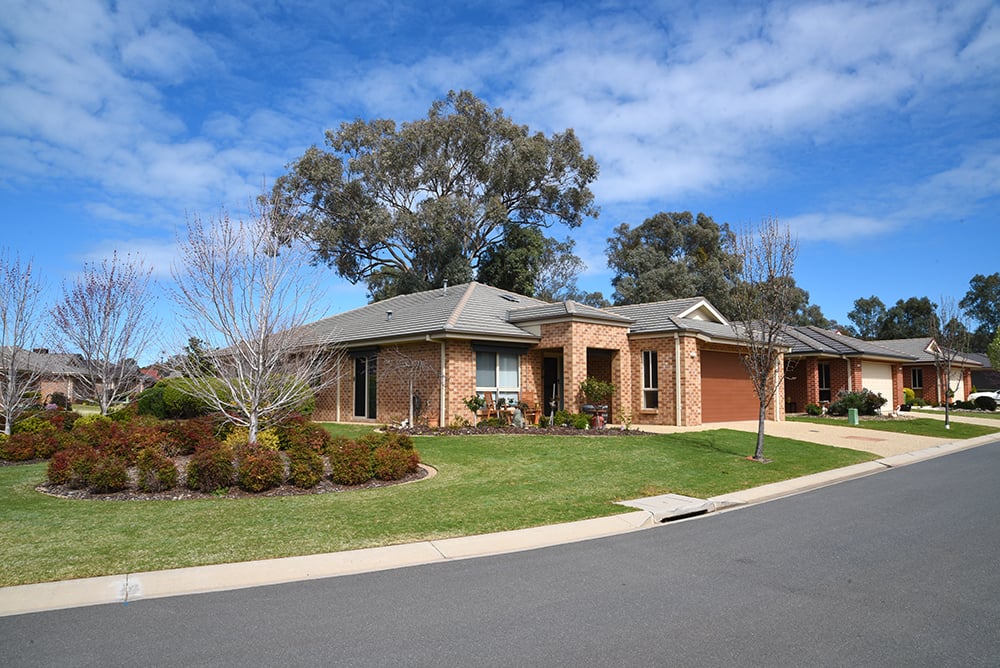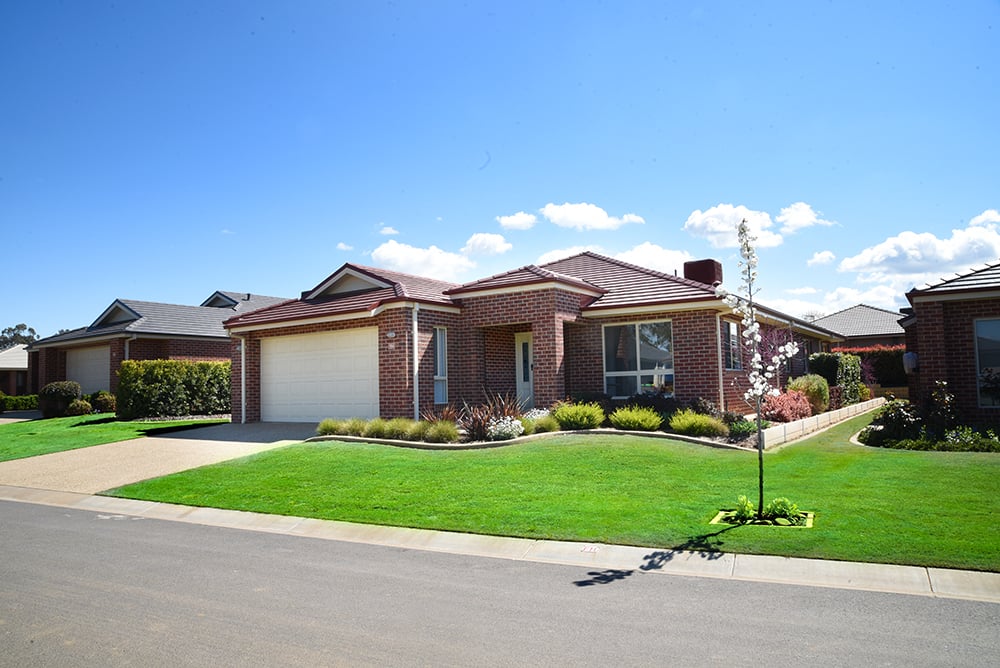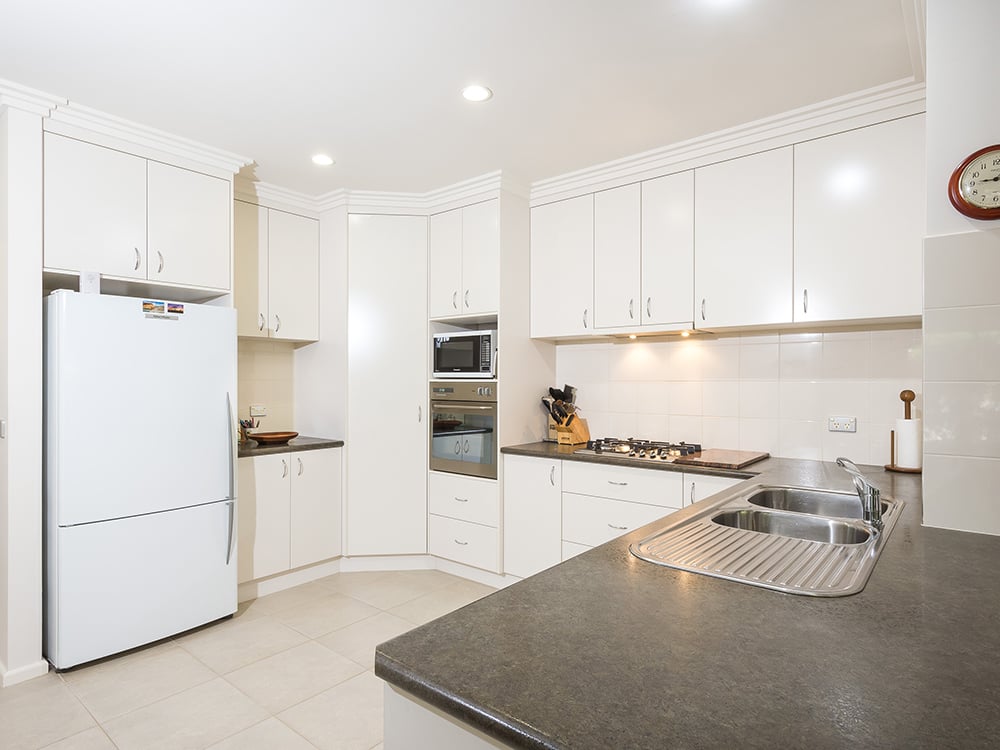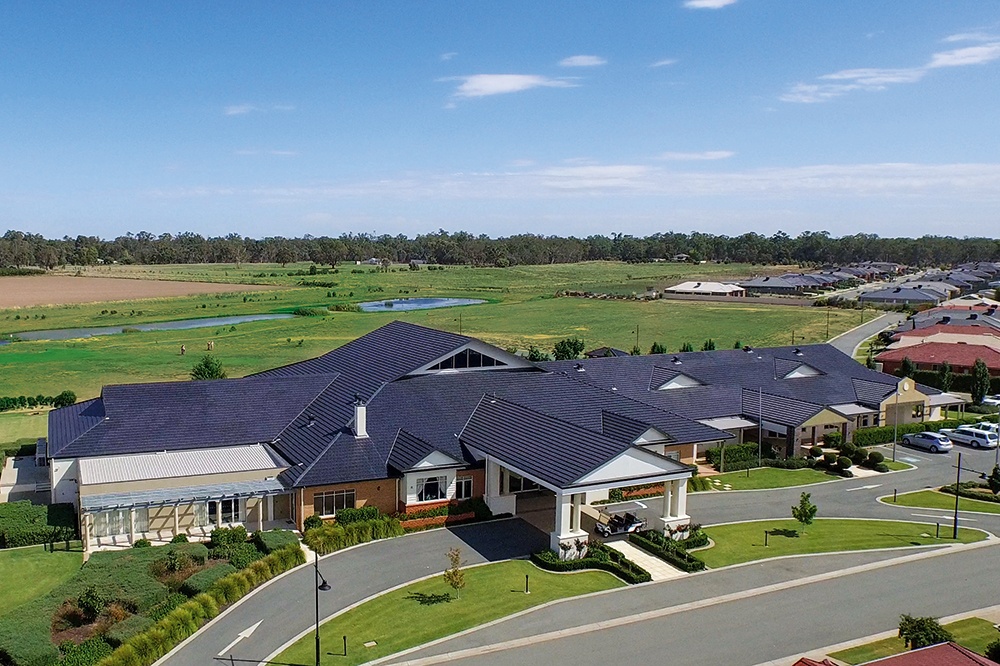Find the lifestyle that suits you down to the ground
If you’ve decided that it’s time for you to start thinking about moving out of the family home and into retirement living, you’ll find your choices are practically endless.
That’s why your first step should be to narrow down your options to a few retirement villages based on their location, facilities, affordability, recommendations you’ve received, or perhaps a combination of all these variables.

Once you have your shortlist, the next step is to book in for a full tour of each village. After all, you need to be certain you’ve found the perfect fit for your lifestyle and the retirement you’ve always wanted. What looks fantastic on the outside may not be so great once you start asking more questions!
To help you with your decision making process we’ve put together a list of some common questions that will help give you the complete picture of each village you’re considering.
Don’t worry, the village management team have heard them all before, and they should be more than happy to answer your questions. If they’re not, it could be a sign that you might want to continue your search elsewhere!
1) What residents’ facilities does the retirement village have?
You’ll no doubt have a pretty good idea of how you’d like to spend your retirement years. Your tour will no doubt include a look at the village facilities, so keep an eye out for the things that most appeal to you.

Are you a swimmer, do you enjoy croquet, or are arts & crafts your focus? Or what about yoga, tai chi, or aqua aerobics?
Are there enough facilities to keep the grandkids entertained when they come to visit you? Find out what activities are organised, and whether the private function areas are regularly available for residents.
2) How close is the village to services, shops and amenities?
You might like to check that the retirement village is located close to health services such as a doctor and dentist, and not too far from a hospital. And what about public transport, cafes & restaurants, shops, and the cinema? Depending on your personal preference you may also want to be close to sporting facilities.
3) What services do residents’ fees include?
Inclusions will vary from village to village, but as a guide you’d expect fees to include management and administration services, council rates, water and sewerage, as well as cleaning, maintenance and gardening for the shared community spaces.

4) What optional user-pays services are available?
Additional activities and services can sometimes be available at an additional cost. For example, your village might receive visits from a hairdresser, massage therapist or physiotherapist.
5) Who owns and manages the retirement village?
You might like to know if the retirement village you’re thinking about is a private business or whether it’s run by a charity or not-for-profit. The services, fees, rules and management style of each will vary accordingly.
It also pays to find out whether the village is operated by the owner, or by a separate management company. Ask about the on-site staff – is there someone available for you seven days a week, or do they only work weekdays? That will mean you have less support on weekends and in the evenings.
6) What type of homes are offered?
You’ll find that retirement accommodation varies greatly, with villages offering everything from units, duplexes and villas, townhouses and apartments through to serviced accommodation and assisted living.

What type of home suits you? Think about your needs not just today, but also what they might be in the future. You can then make sure the style of housing you decide on will meet those needs.
7) What features and inclusions come with the retirement accommodation?
Make a list of all your ‘must haves’ and ‘like-to-haves’ for your retirement living, and take it with you as you tour the various villages. Make notes so that you can remember each village in future!
Your ‘must haves’ might include an architect-designed home with quality finishes, fixtures and fittings; air conditioning to keep you comfy all year round; security screens or perhaps a well-appointed large kitchen.

Your ‘like-to-haves’ could be things like tiles rather than carpet, a nice little corner block with an established garden, or perhaps an interesting outlook. You may need to compromise a little – but not a lot.
8) How big is the village – both now and in future plans?
You’ll no doubt have a preference for the size of community you’d like to move into; whether it’s a larger, more energetic one or perhaps a smaller, more intimate community.
Neither one is necessarily “better” than the other; it’s just a matter of your personal choice. So when you’re on your tour, ask about the village’s current size and about their expansion plans. In a larger village you’ll have more chance to meet people, and there may be a wider range of services on offer. A smaller village may be quieter and more relaxing.

Ask your guide about the surrounding area while you’re at it. What is currently under construction and are there plans for redevelopment or expansion in the future? Are there plans to clear the bushland next door and put in a busy development that’s not advantageous to your happy retirement?
9) What rules must village residents abide by?
Before you move into a retirement village, make sure you know all the rules around visitor stays, pets, car parking, smoking, and all the rest of it. Ask for the village handbook which outlines everything, or perhaps check on the village website. Rules are a good thing; you just need to be aware of them before you try to move in with your pet crocodile!
10) What does the community spirit feel like?
Of course this can be a difficult thing to really understand before you move into a community. Yet there are a few telling signs you can look out for.

Do the team make you feel welcome? Do they seem to genuinely enjoy working there, or are they simply trying to ‘sell’ the village to you?
What about the residents themselves? See if you can speak with them to find out first-hand what it’s like to live in the community. You might want to ask how involved they are in decision making and if there is an active residents’ committee... and how are disputes handled?
Above all, how do you feel when you walk around? Can you see yourself fitting in?
11) What’s the story with the financials and legals?
Of course, this is quite a complicated and involved subject. Everything regarding the financials should be explained to you. If this isn’t your area of expertise make sure you have someone with you who understands.
Take your time and make sure all costs, fees and legals are explained to you in language that makes sense to you – and don’t feel pressured to make this important decision on the spot.
Take a tour of Kensington Gardens and ask us your questions
Retirement living has come such a long way in recent years. Kensington Gardens Albury and Shepparton were built for active retirees, people who want to enjoy every moment, join in fun activities with like-minded friends, learn new skills and take off on adventures.
We invite you to come for a visit and see for yourself whether our retirement communities are a good fit for you. Ask us any questions you like!
If you’d like to see Kensington Gardens for yourself, arrange your personal tour by calling us today or get in touch online to book a time to come in and visit us.





